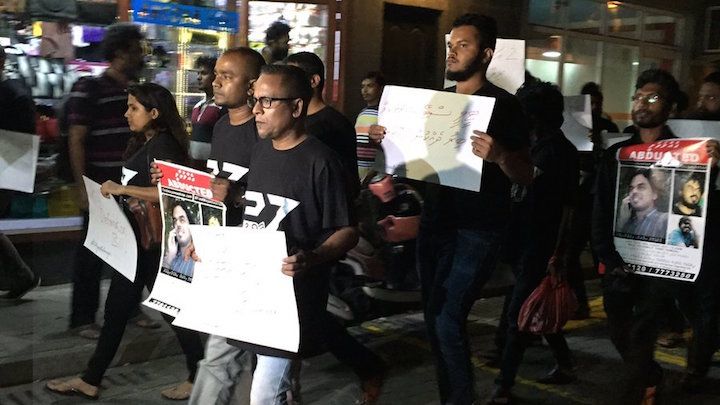Defamation bill draws international criticism
The revised defamation bill is a “serious setback for freedom of speech in the Maldives,” said the US, UK, EU, Germany, Norway and the Netherlands in a strongly worded joint statement.

01 Aug 2016, 09:00
A government-sponsored bill criminalizing defamation has drawn fierce criticism from the United States, the United Kingdom and the European Union.
The bill, up for debate at the parliament on Monday, is a “serious setback for freedom of speech in the Maldives,” said the US, UK, EU, Germany, Norway and the Netherlands in a strongly worded joint statement issued on Sunday.
“It will allow severe penalties to be imposed on those who which exercise their democratic rights and freedoms,” the statement said, urging President Abdulla Yameen to return to the path of democracy, transparency and the rule of law.
“We express our support for all Maldivians struggling to preserve their hard won democratic institutions and rights,” the statement read.
Become a member
Get full access to our archive and personalise your experience.
Already a member?
Discussion
No comments yet. Be the first to share your thoughts!
No comments yet. Be the first to join the conversation!
Join the Conversation
Sign in to share your thoughts under an alias and take part in the discussion. Independent journalism thrives on open, respectful debate — your voice matters.




